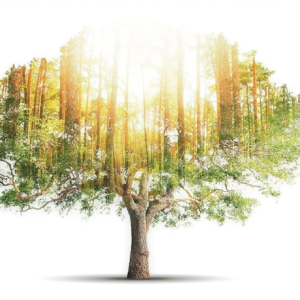Episodes

Sunday Apr 28, 2024
Sunday Apr 28, 2024
Any of the titles we ascribe to God or Jesus both liberate and limit. Lord is both wonderful and problematic, helpful in some ways and restrictive in others. But what if the Lord's Kingdom has been misrepresented to us? What if our vision has been overly influenced by our conquering past and world-dominating Super Power present (hint: it has). This teaching explores "the Lord" and leaves us unsettled. Good luck.

Sunday Apr 21, 2024
Sunday Apr 21, 2024
History changed the understanding of savior into an otherworldly superhero who came to save the day and will come again to do it again a final time. Too bad that's not how Jesus - or his original audience - wanted to be known. Imagine how history would have unfolded differently if the actual rendering of the word savior as healer would have dominated? How can we embrace this meaning today? What are the implications for our private lives and even global conflicts?

Sunday Apr 14, 2024
Sunday Apr 14, 2024
What does it mean for us to refer to Jesus as our teacher? When we appreciate that Jesus was referred to as "rabbi" we begin to get a better idea about who he was and what the relationship meant between the rabbi and their disciples.

Sunday Apr 07, 2024
Sunday Apr 07, 2024
In this teaching, informed by the book, Freeing Jesus, by Diana Butler Bass, we take a look at Jesus as a friend. Note: the whole service was about friendship, including a game of Name That Tune, a short film and meditation based on friendship, and the teaching. If you'd like to watch it, go to our Live videos and check out 2024-04-07.

Sunday Mar 31, 2024
Sunday Mar 31, 2024
The Easter story is tricky. Do you think it's true? What does that mean? In this talk, we explore what it means to say something is true, give a nod to The Tower, offer a framework to understand and interpret mystical experiences, and consider what the point of Jesus was then and now. Hint: it has a lot to do with love.

Sunday Mar 24, 2024
Sunday Mar 24, 2024
Sometimes we don't experience the full impact of the story because we constantly break it up into smaller chunks. This week, enjoy hearing Mark's version of the full story of Jesus' last week of life with some breaks for reflection, a meditation, and some music from Mark 11, 14 and 15.

Sunday Mar 17, 2024
Sunday Mar 17, 2024
The version of the death of Jesus as a sacrifice for sin is well known and has been effective in causing many to join the Christian faith. Yet there are aspects that are deeply problematic - so much so that many are leaving the faith because of ithem. The earliest understanding of the cross didn't see it as a means of forgiveness, but as a model for grace under pressure, consistent with the message Jesus lived and taught throughout his ministry. Perhaps the earlier message might woo people back to the faith they though they knew...

Sunday Mar 10, 2024
Sunday Mar 10, 2024
Sometimes not paying attention to the original language's meaning can lead to generations of misinformed and deformed faith...

Sunday Mar 03, 2024
Sunday Mar 03, 2024
God - however we understand who and/or what God is - is all about the Hebrew concept of shalom. Deep peace, well-being, wholeness are some words in English that don't quite capture it. And then there's the beautiful mind-bender part of shalom that somehow brings together seeming opposites. When we embrace this fully, we discover that the most awful parts of our past can be transformed into something meaningful in our lives - the gnashing teeth of the monster in our memory can be pacified. It's work, but we are not alone, of the Sprit of God, being all about shalom, is constantly with us, for us, helping us move forward to, well, more and more and deeper and deeper shalom.

Sunday Feb 25, 2024
Sunday Feb 25, 2024
Enjoy special guest teacher and CrossWalker, Rev. Dr. Angela Barker-Jackson, as she wraps up the Simplicity, Spirituality, and Service series dovetailing Bruce Epperly, James Cone, and lectionary texts.
